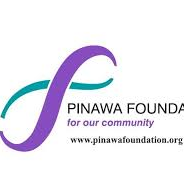
Open
Manitoba cultural industries printing tax credit
Last Update: October 27, 2025
MB, Canada
Refundable tax credit for Manitoba book printing businesses
Tax Credits
At a glance
Funding available
Financing goals
Optimize production processes
Eligible Funding
- Maximum amount : 1,100,000 $
- Up to 35% of project cost
Timeline
- Unspecified
Eligible candidates
Eligible Industries
- Information and cultural industries
Location
- Manitoba
Legal structures
- For-profit business
Annual revenue
- $ 200,000 maximum revenue
Organisation size
- All organization sizes
Audience
- All groups
Overview
The Manitoba Cultural Industries Printing Tax Credit offers up to $1.1 million per corporation annually to support Manitoba-based printers with eligible book production costs. This program aims to encourage the printing of new, Canadian-authored books by providing a refundable tax credit for qualifying printing expenses.
Activities funded
- Production and printing of eligible Canadian-authored books in Manitoba.
Examples of admissible projects:
$ 18,000
Launch after-school STEM robotics program for local youth
$ 34,000
Retrofit seniors’ housing to improve accessibility and fire safety
$ 32,000
Upgrade bakery production with energy-efficient ovens and software
$ 41,000
Install solar panels on dairy cooperative production facilities
$ 37,000
Expand organic vegetables farm with drip irrigation technology
$ 24,000
Launch online retail platform and logistics system for artisans
Eligibility
- The applicant must be engaged in the business of printing books in Manitoba.
- The company must have a permanent establishment in Manitoba.
- The company must be producing eligible books, defined as non-periodical Canadian-authored publications in fiction, non-fiction, poetry, drama, biography, or children's categories, printed before 2025.
- At least 90% of each eligible book must consist of new material that has not been previously published.
- The printer must demonstrate that each book is for sale through an established distributor.
Who is eligible?
- Companies engaged in the business of printing books in Manitoba
Eligible expenses
- Salaries and wages paid to employees resident in Manitoba for their work in the book printing division.
- Eligible printing costs incurred and paid in producing eligible books.
Eligible geographic areas
- Businesses with a permanent establishment in Manitoba.
How to apply
- Step 1: Calculate Eligible Tax Credit AmountDetermine total eligible printing costs incurred and paid before 2025 for eligible books.
- Calculate the credit using the provided formula: tax credit = 35% × L × (R1/R2), where L, R1, and R2 are defined by the program.
- Step 2: Complete Tax Credit FormsFill out Schedule 5, Tax Calculation Supplementary – Corporations, specifically line 611, to report the amount of the tax credit claimed.
- Step 3: Submit Supporting Tax DocumentationInclude Schedule 5 with your corporation’s annual tax return submission to Manitoba Finance.
Additional information
- The annual maximum tax credit of $1.1 million per corporation must be shared among related or associated eligible printers.
- The tax credit is refundable, meaning it can result in a cash refund even if no taxes are owed.
- To claim the credit, it must be reported on line 611 of Schedule 5, Tax Calculation Supplementary – Corporations.
- The program was announced as being made permanent, but eligible costs must be incurred and paid before 2025 for the current cycle.
Apply to this program
Frequently Asked Questions about the Manitoba cultural industries printing tax credit Program
Here are answers to the most common questions about the Manitoba cultural industries printing tax credit. This section explains what the program is, how much funding is available, eligibility requirements, application deadlines, and other important details to help you determine if this grant is right for your business.
What is the Manitoba cultural industries printing tax credit?
How much funding can be received?
Who is eligible for the Manitoba cultural industries printing tax credit program?
What expenses are eligible under Manitoba cultural industries printing tax credit?
Where is the Manitoba cultural industries printing tax credit available?
Is the Manitoba cultural industries printing tax credit a grant, loan, or tax credit?
Who are the financial supporters of the Manitoba cultural industries printing tax credit?
Apply to this program
More programs like this

Grant and FundingOpen
Pinawa Foundation
Pinawa Community Foundation Inc.Supports community-benefit projects in key local sectors

Tax CreditsOpen
Manitoba data processing investment tax credits
Government of ManitobaTax credits for Manitoba corporations investing in data processing

Grant and FundingOpen
Winkler Community Foundation - Community Fund
The Winkler Community Foundation Inc.Supports community projects improving local well-being

Tax CreditsOpen
Manitoba community enterprise development tax credit
Government of ManitobaTax credit for Manitoba community enterprise development

Other SupportExpert AdviceOpen
Community Futures Manitoba — Entrepreneurs with Disabilities Program
Prairies Economic Development Canada (PrairiesCan)Loans and advice for rural Manitoba entrepreneurs with disabilities

Expert AdviceOpen
Innovation Canada — Innovation Advisors in MB
Innovation CanadaPersonalized advisory services for innovators in Manitoba

Grant and FundingClosed
Building Sector Capacity, Growth and Competitiveness
Government of ManitobaSupports agri-processing sector modernization, growth, and sustainability in Manitoba

Grant and FundingOpen
MHTP Funding
Government of ManitobaSupports heritage organizations with sustainable endowment funding and preservation efforts.

Grant and FundingClosed
Urban/Hometown Green Team Program
Government of ManitobaSupports youth employment and community development projects.
Sign up to our platform to access the Manitoba cultural industries printing tax credit information sheet for free
Get access to 4,000+ programs, practical guides, personalized alerts, and an AI assistant to support your grant applications.